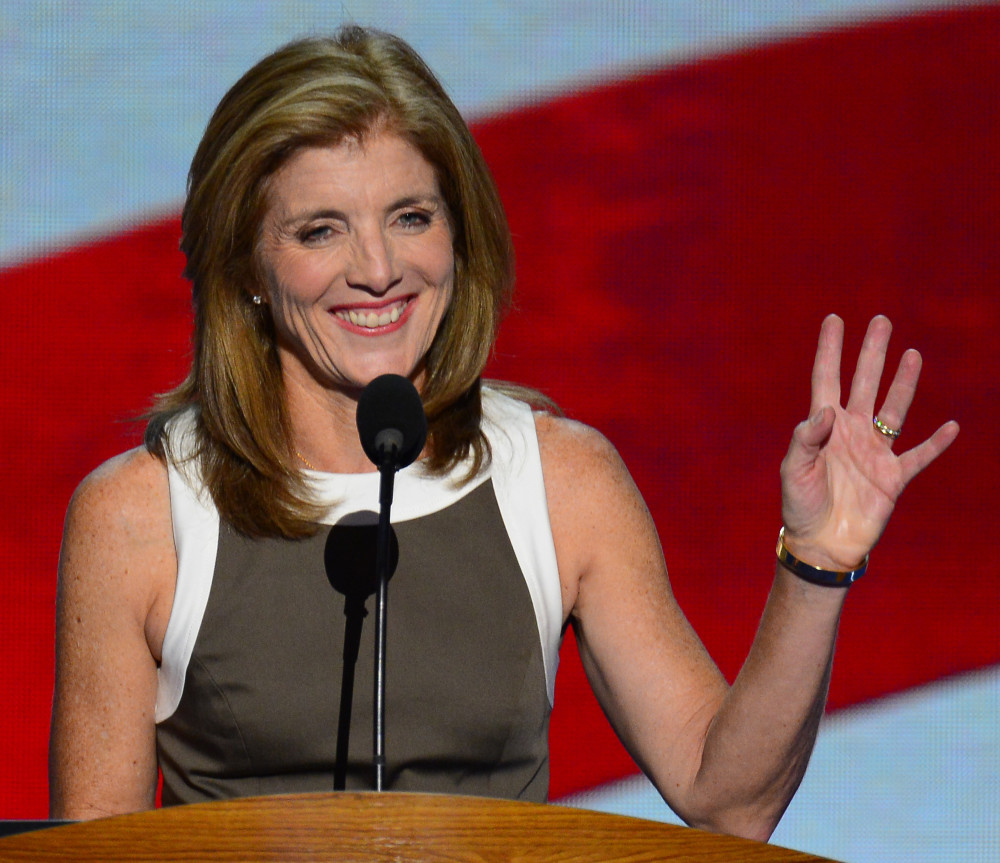By Mami Maruko
Japan Times, Tokyo.
Women’s advances in society are now a “must” in Japan, with Prime Minister Shinzo Abe’s administration pledging to make every woman shine.
But many still find it difficult to break the glass ceiling in a male-dominated society –mainly due to their lack of self-confidence, speakers at a recent Tokyo forum on gender diversity said.
Since 2006, the Global Organization for Leadership and Diversity, a California-based nonprofit organization, has held forums in Los Angeles and Tokyo to advance the status of women in leadership positions in the United States and Japan.
Hiroko Tatebe, a former executive at Dai-Ichi Kangyo Bank of California who founded the organization in 2006, said the group has provided a venue for people from across the Pacific to share best practices and exchange ideas on how to better include and empower women in society.
U.S. Ambassador Caroline Kennedy kicked off the forum, delivering the opening remarks as an audience of more than 200 people listened eagerly.
The room was full of mostly female Japanese and American corporate executives, educators and leaders of nonprofit organizations.
But there were more men in the room than there were at the same forum a few years ago — a positive sign of change in Japan, suggesting men are now more involved in the empowerment of women.
In one of the sessions, panelists stressed that it’s important for men, as well as women, to be part of the conversation on how to include women in society, as men also have a big role to play in the lives of women in the workplace and at home.
In another session, Mitsuru Chino, 48, executive officer at Itochu Corp., said female role models also play an important part in encouraging younger women to become successful in society.
In 2013, at the age of 46, Chino herself became the first woman to assume such a high-ranking position at a major Japanese trading house.
She said what made her build up her confidence and keep moving forward was the existence of several female role models in her life: her mother, grandmother and the boss at her former workplace, Merrill Lynch (now part of Bank of America Corp.) in the U.S.
Her mother, who earned a Ph.D. in English and started her teaching career at the age of 55, taught her the importance of women having a career. Her grandmother taught her the importance of money and risk-taking in life. And her former boss gave her lots of new challenges to tackle, while taking responsibility for mistakes that Chino made.
She said that getting encouragement and compliments were vital for her “to build confidence, and to perform better.”
After she started serving as an executive, she said she has always tried to give the same kind of encouragement to her juniors.
Speakers said that many women turn down offers for promotion because they aren’t confident about their abilities.
“Most women are afraid to take responsibility,” said Izumi Kobayashi, director and member of the boards at three companies: ANA Holdings Inc., Suntory Holdings Ltd. and Mitsui & Co.
That’s why it’s “especially important for women to have sponsors (or mentors),” said Chino, adding that women can perform better if they are encouraged and given a chance to challenge themselves further.
Royanne Doi, corporate chief ethics officer and vice president at Prudential Financial Inc., said that one can see a “different world” with each step one climbs.
“The people you talk to also change,” and this widens one’s horizons, she said.
Probably best known as a casting director for Japanese actors for Hollywood films, Yoko Narahashi said in her speech that in Japan, people generally “hesitate to take risks.”
She added that adults should push more young people to study abroad.
“Young people should know how it enriches their lives, and how fun it is going outside of Japan,” she said, pointing out that adults often talk too much about the challenges of studying abroad.
At another session, panelists said it’s vital not only to change the mentality of women, but also to try to change the ways things operate in some industries, including filmmaking, where female staff are few and far between, and are rarely given prominent jobs.
Madeline Di Nonno, CEO of the Geena Davis Institute on Gender in Media, sent out a video message from California that noted the U.S. film industry is a prime example of how progress remains stagnant, despite initiatives to promote women worldwide — including the Millennium Development Goals set in 2000 by the United Nations, which aim to eliminate disparity in access to education, jobs and economic assets.
The Geena Davis Institute on Gender in Media, a research-based organization founded by Academy Award-winning actress Geena Davis, works with the media and entertainment industry to improve gender balance and the empowerment of women, especially in children’s media.
It engaged in research on gender bias in the film industry in 11 countries, including the U.S. and Japan.
The institute found that only 31 percent of speaking roles in films are performed by women or girls, and that only 23 percent of films feature a female protagonist.
The institute aims to raise awareness, and eventually make changes in the roles that women have in the film industry, through extensive research and sharing of information.
“Most successful women here have something in common,” said Kimiko Horii, president of Tokyo-based Research Institute of Self-Esteem. “They had a dream, and wanted to truly realize their dreams. They had a strong will never to give up (under) any circumstance.”














































































































































































































































































































































































